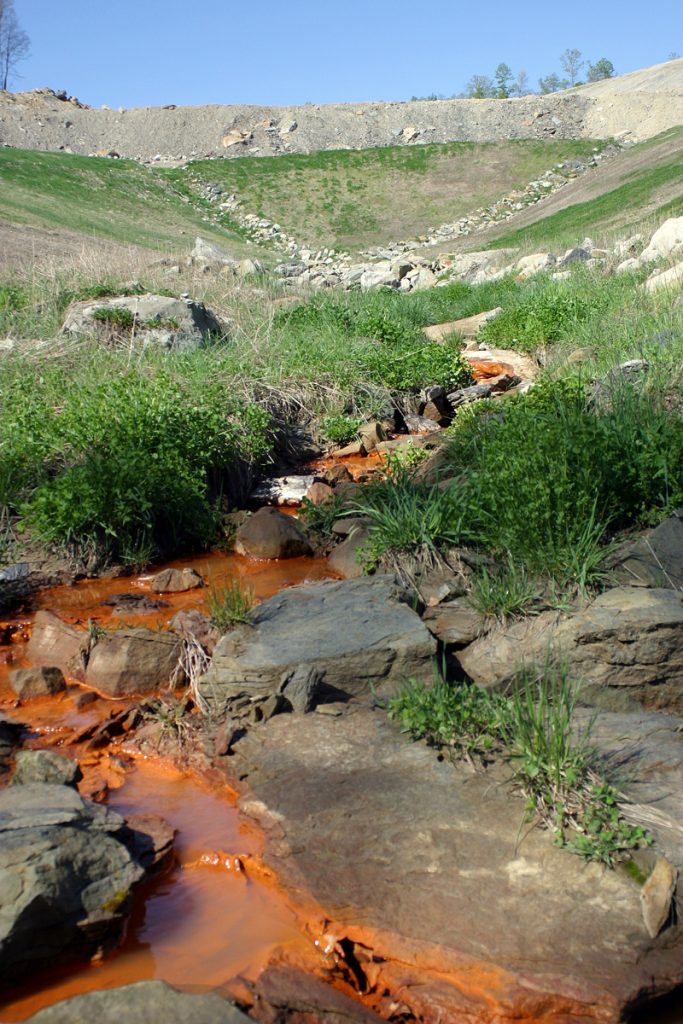Cleaning Up Coal Ash
For well over a century, power plants across the country have burned coal to generate electricity. And for just as long, leftover coal ash has been dumped in open, unlined pits near the power plant, usually located on a river or lake. Every year, U.S. power plants produce 130 million tons of coal ash, which is the second largest waste stream in the country after municipal garbage.
Coal ash concentrates the toxic heavy metals found in coal, including arsenic, mercury, lead and selenium. Stored in unlined, wet impoundments, coal ash has been leaking these toxics into our groundwater and surface waters for years. Sometimes these impoundments collapse — with disastrous results.
Yet government regulations for coal ash management are either non-existent or sparse, and there is little enforcement of the regulations that do exist. In North Carolina, this lack of oversight — and the complicity between state regulators, elected officials and Duke Energy — came to a boiling point in February 2014 when one of Duke’s coal ash impoundments spilled 39 million tons of ash into the Dan River.
Citizens living near North Carolina’s 33 coal ash impoundments — all of which have leaked — have fought for transparency from Duke and the state, and for cleanup of the pollution that threatens their property value, health and family. Their actions forced this issue into the headlines of news networks and to the forefront of environmental justice conversations in the United States.
Appalachian Voices stood with these communities as we worked for years to compel Duke Energy and the N.C. Department of Environmental Quality to excavate coal ash from all the North Carolina sites and dispose of it either in lined, dry landfills, away from waterways, or by recycling it for concrete or other uses, provided it’s done in a manner that protects public health and the environment.
On Jan. 2, 2020, North Carolina announced a historic settlement with one of the state’s most powerful corporations and polluters, Duke Energy. The settlement requires Duke to move nearly 80 million tons of toxic coal ash at six of its power plants to properly lined landfills onsite or recycle it.

Learn information about specific coal ash impoundments in the South, including health threats and safety ratings:
Additional Resources
Fact sheets, videos, links to academic research, and more
Sign Up to Act
Help us protect the health of our communities and waterways.
Latest News
Abandoned mines bill directs federal investment to communities hit hardest by coal decline
Contact: Adam Wells, Economic Diversification Program Coordinator, Appalachian…
Appalachia’s stream health in the balance
“I can remember swimming, fishing, and camping on the Powell River. I can also remember times when those activities were not possible due to mining in the Powell River’s watershed that had devastated the ecosystem, wiping out fish populations and polluting the water to the point that it was unhealthy to swim in. My hope is that the Stream Protection Rule will ensure our rivers and streams are healthy for all the life that depends on them – including us.” — Adam Malle’s testimony to OSMRE on the Stream Protection Rule
Appalachian Voices testifies before Senate panel on coal-mining rule
Contact: Matt Wasson, Program Director, 828-773-0799, matt@appvoices.org Cat…
Va. leaders urge Gov. McAuliffe to reject Dominion’s climate-polluting plan
From Appalachian Voices’ Press Room: Earlier this week, a wide array of Virginia leaders released a letter asking Governor Terry McAuliffe to reject efforts by Dominion Power that would increase carbon pollution in the Commonwealth.
Do bankrupt coal company executives really deserve bonuses?
Witnessing the one-sidedness of coal bankruptcies in Appalachia and their aftershocks goes to show who has a voice and whose voices the system values. Take Alpha Natural Resources, which recently received approval to pay its executives millions in bonuses despite not having made a profit since 2011.
Virginia leaders to Gov. McAuliffe: Reject Dominion’s efforts to increase climate change pollution
Contact: Hannah Wiegard, Appalachian Voices, hannah@appvoices.org, 434-293-6373 Kate…








